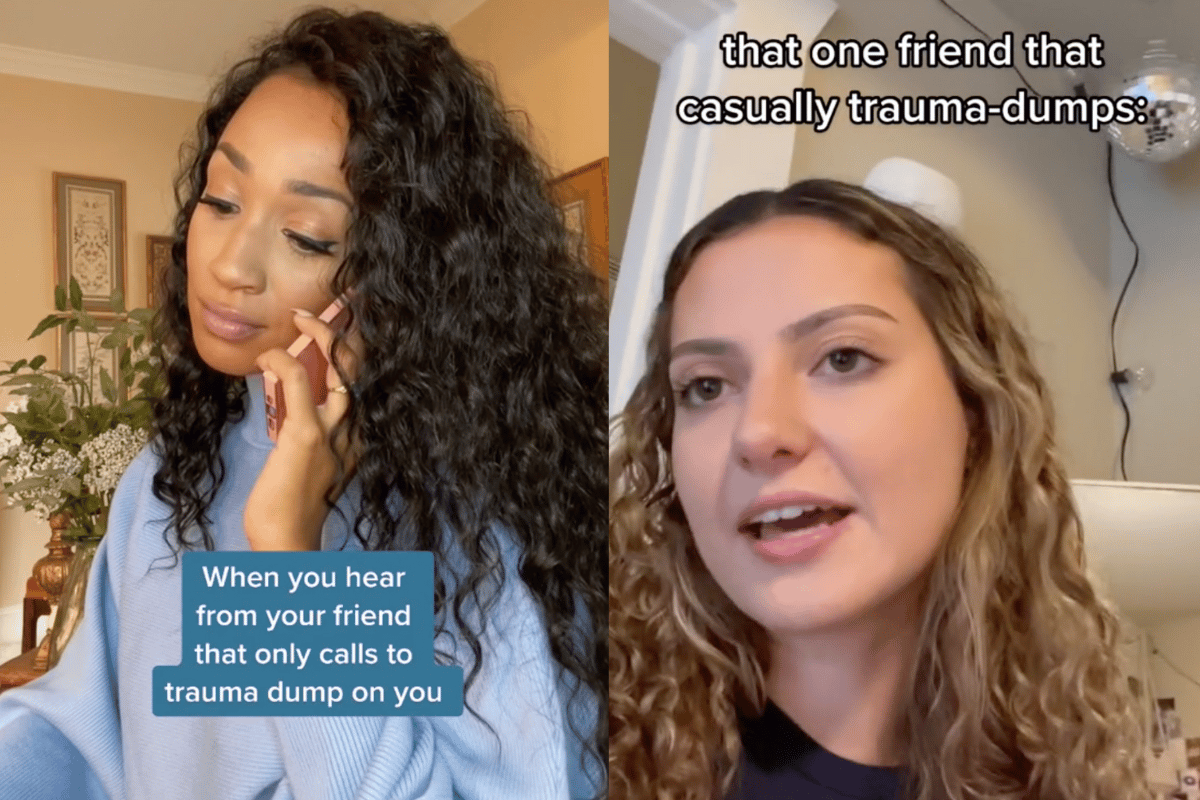
Everyone has sh*t going on right now. There's no doubt about it.
Of course, our woes all exist on a spectrum - some are small in the grand scheme of things but leave us feeling incredibly irritated and burnt out. Others are significant life hurdles.
When in the midst of a challenge, many find comfort and clarity in speaking with a friend. It's a strategy recommended by the experts themselves, who say that bottling up emotions rather than talking about them does more harm than good.
But there's a catch. When venting about a problem in our life evolves into a full-on trauma dump, that's when it can really impact our friendships.
Watch: What is self-care mental health literacy? Post continues below.
Can you explain: what is a trauma dump?
Trauma dumping is when a person has the urge to share their traumatic experiences all in one big hit to another person. Often, that person is a friend, but sometimes they can even be someone they don't know awfully well.
The person off-loads their traumatic thoughts, feelings and experiences, talking only about themselves and not leaving any space for the other person to do the same. It is also an issue when the person on the receiving end isn't equipped mentally or emotionally to handle the information.




























































































